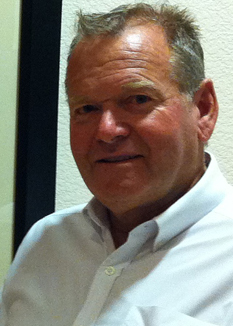
BACK FROM THE DEAD!
"Mr. Smith should be removed from life support and be allowed to die as continuing is only prolonging his inevitable death."
These were the heart breaking words spoken to the family of Allan Smith, a dairy farmer from New Zealand, who had contracted acute swine flu while on a diving and fishing trip in Fiji in 2009. Knowing that swine flu (swine influenza) is a highly contagious, acute respiratory viral disease that can lead to death, it was no surprise that Mr. Smith's health was rapidly declining.
At his bedside the doctor asked Sonia Smith, Allan's wife, how many children they had. "I told him three sons. Why?" she says.
He looked at me and replied, "Your husband is not going to survive this. You had better get them over here now." Just days earlier, Sonia had greeted her husband at the Tauranga airport and now she was being told to prepare for his inevitable death. A shocking turn of events!
Towards the end of Mr. Smith's trip to Fiji he was feeling a bit "woozy" but he had "toughed it out". By the time he stepped off the plane he was unable to see clearly and was having difficulty with his balance. His condition deteriorated through the night. The family called an ambulance; but they were unable to take him due to his severe flu-like symptoms. So his family drove Allan to a medical clinic and were told he had bacterial pneumonia and needed emergency care.
The Tauranga ICU, having confirmed Mr. Smith had swine flu, conferred with nearby hospitals for assistance.
By now Allan's body was starting to shut down. He had scurvy and was bleeding from the mouth, nose and bowel.
Auckland Hospital had an extracorporeal membrane oxygenation machine (ECMO), which is similar to a heart lung machine. The hospital sent an air ambulance to collect Mr. Smith. Unfortunately he was too unstable to travel. Time was a precious commodity and decisions had to be made quickly. Instead a mobile ECMO was flown to Tauranga Hospital; Mr. Smith was then transferred to Auckland's Intensive Care Unit once he was stable enough for transport.
After three weeks in an induced coma, Mr. Smith's anxious family was told the ICU specialists were in unanimous agreement. Mr. Smith "should be removed from ECMO and be allowed to die as continuing is only prolonging his inevitable death".
These are devastating words for any family, especially for a close-knit family like the Smiths. Not ready to give up, they searched for alternative treatments. Mr. Smith's brother-in-law, Jimmy, suggested intravenous (IV) vitamin C. The family decided they had nothing to lose and everything to gain.
The ICU specialists disagreed that IV vitamin C would improve Allan's condition. "But Jimmy had taken vitamin C for years and was convinced it would help Allan.", said Mrs. Smith.
Mr. Smith's family continued to fight for the administration of IV vitamin C. Fortunately, Jimmy made contact with Dr. Thomas E. Levy, an American cardiologist, researcher, lawyer, and author. Dr. Levy is considered to be one of the foremost authorities on vitamin C. He has authored several books devoted to vitamin C including Primal Panacea and Curing the Incurable: Vitamin C, Infectious Diseases, and Toxins. Dr. Levy readily supplied the protocols for the IV vitamin C treatment.
Allan began treatments with intravenous infusions of vitamin C at doses with the caveat that the treatments would be given for three days. After that the ICU specialist would remove Mr. Smith from life support.
Two days later, Mr. Smith's lung x-rays showed a marked improvement. After a week of vitamin C treatment, he was well enough to come off the ECMO machine.
Today Allan Smith can be found working his farm, enjoying his family and living life to the fullest. To this day, Mr. Smith's routine includes liposomal Vitamin C.